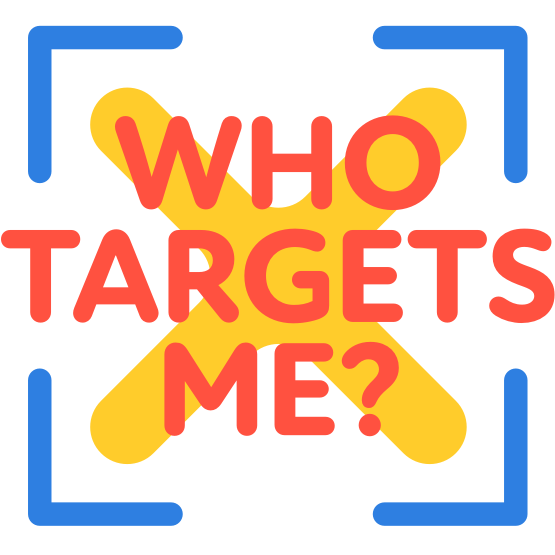Who Targets Me started in 2017 as an effort to understand the ways UK political parties use Facebook advertising. Subsequently we grew as a global project to create greater accountability and knowledge about political social media through research, and to advocate for new rules for democracy and elections fit for the digital age.
By using mixed methods, exploring our data and working collaboratively with others, our main research goals are:
- To better understand the effect of online political advertising on individuals and society.
- To better understand the tools and methods used by platforms and campaigns to deliver online political advertising.
- To create functioning policy that protects and enhances democracy, based on evidence of the use and impact of online political advertising.
- To share the data and tools we use so that others might draw their own – potentially different – conclusions.
- To remain balanced and evidence-led.
Qualitative research
We constantly look for interesting uses of digital political ads and telling the story of that use. Things we find interesting are:
- The use of advertising by mainstream campaigns and actors.
- Campaigns that are hard to identify/attribute to any ‘real world’ actor. This might include ‘foreign’ or ‘inauthentic’ influence.
- Campaigns that spend large sums and run thousands of ads.
- Interesting uses of messaging.
- Notable ways in which ads are targeted.
- Innovations (and often misuses) of the platforms’ ad products to gain advantage over others.
We use data built by users of the Who Targets Me browser extensions, platform ad libraries and other sources such as news coverage and electoral data.
We will often share the most significant findings with media organisations. We are also often contacted by journalists looking for research for particular stories they’re working on. We work with a wide range of media organisations and have no financial or exclusivity relationships with any publication.
Quantitative research and data sources
We also create tools for looking at online political advertising data at scale. These help us, other researchers, and users to better understand political advertising. Our tools can notify you when campaigns launch new ads on Facebook, help you analyze spending data, and generate reports about who is directly targeting you with their political advertising on Facebook.
Collaborations with research partners
We have three ongoing research partnerships.
The largest of these is DiCED, an EU-funded project in collaboration with the University of Manchester, YouGov and a number of partner researchers based in universities around the world. The objective of the five year study is to understand the impact of targeted digital communications on voters and campaigns, as well as testing a range of potential interactions . We worked together on the US 2020, and will continue to collaborate on the Germany 2021, France and US 2022, Poland 2023 and US and UK 2024 elections.
Along with this, we’re working with the University of Amsterdam on a multi-year project to examine similar questions, with a particular focus on the legal frameworks around political communication. As part of this, we’ll be looked at the Dutch election in spring 2021. The project is funded by the Dutch Academy of Sciences.
Finally, we’re working with researchers at the University of Bristol and the Max Planck Institute for Human Development in Berlin on developing ‘nudges’ and ‘boosts’ for healthier social media use.
Previously, we’ve worked with the LSE, Oxford Internet Institute, University of Sheffield and the UK Government’s Centre for Data Ethics and Innovation.
Policy research
We produce our own policy research and writing, testing our ideas with peer organisations, policymakers in government, policy teams at technology companies and other thinkers working on the internet’s impact on democracy.
Our key areas of work include defining ‘political ads’ and ‘transparency’, as well as developing ideas to make online political advertising more accountable.
Working with us
We are open to new partnerships and collaborations. Please get in touch if you have questions that you think we, or our data, might be able to help answer. Unfortunately, due to limited resources and existing commitments to other research partners, we can’t work on everything.
